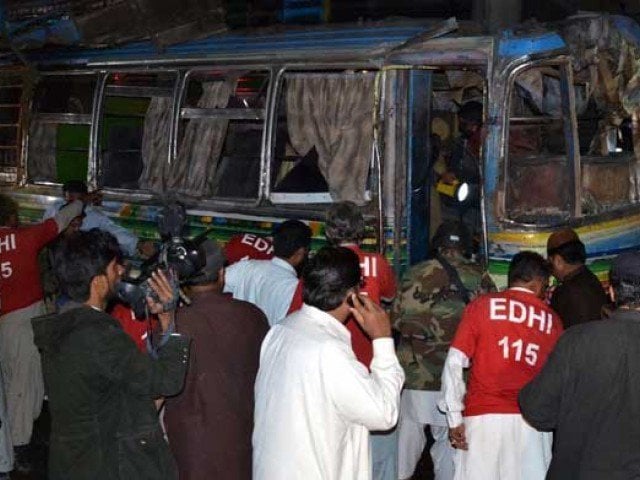
There are at least three separate violent strands to the many afflictions of Balochistan. The religious extremists of varying adherences, the separatist groups that are far from united themselves, and as a subset of the separatists, the avowedly sectarian groups. This adds up to a complex environment of competing and conflicting groups, all of which have the common purpose of wreaking havoc among those least able to protect themselves, the most vulnerable and the poorest end of society as a whole.
The victims are invariably those who have no political power and no voice. They are buried in their hundreds every year and those who survive attacks lead lives blighted by disability, far from the headlines and noticed by nobody. The terrorising of the weak appears to have done little or nothing to advance the cause of any of the groups committing atrocities. The response of assorted governments over decades has been either equivocal or the imposition of state-sanctioned suppression in various forms that has only served to alienate the people of Balochistan. There has been no effective engagement by any government that might point to a political solution and in the midst of all this India is stoking the fires behind the scenes. Despite the recent lull in atrocities committed by all sides, there has been no attempt to capitalise on a period of relative quiescence, no matter how it was achieved. An oversight worthy of rectification.
Published in The Express Tribune, October 21st, 2015.
Like Opinion & Editorial on Facebook, follow @ETOpEd on Twitter to receive all updates on all our daily pieces.

1721394099-0/BeFunky-collage-(22)1721394099-0-165x106.webp)


1732762837-0/Taylor-(3)1732762837-0-165x106.webp)







COMMENTS (1)
Comments are moderated and generally will be posted if they are on-topic and not abusive.
For more information, please see our Comments FAQ